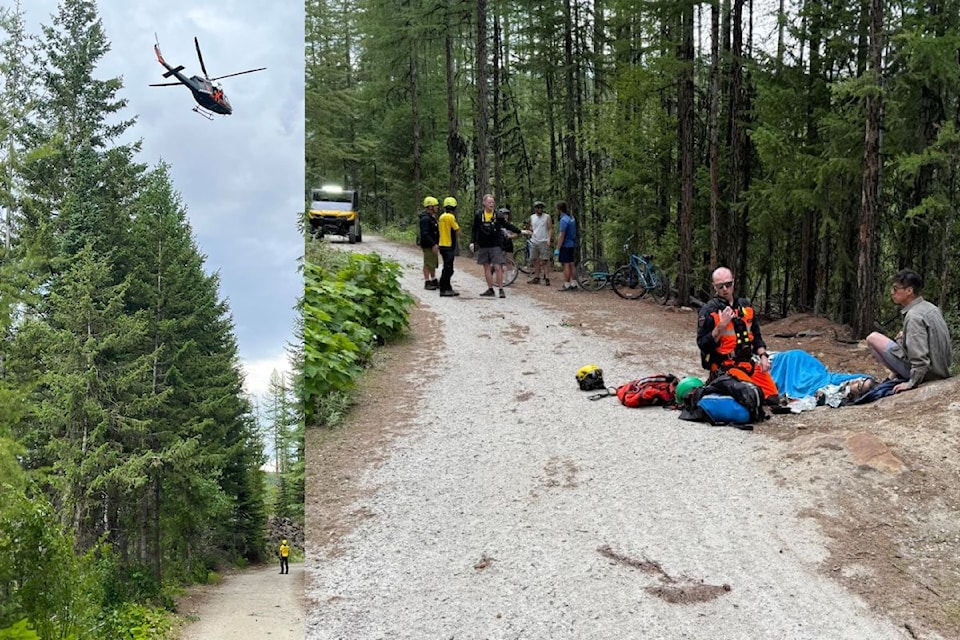Search and rescue teams in Kelowna had a full day of action on Friday, helping people in two different emergencies in the area.
Volunteers from the Central Okanagan Search and Rescue team were called into action for two separate missions. One involved a missing hiker, and the other an injured cyclist in a hard-to-reach location.
In the second incident of the day, an injured cyclist needed urgent help after getting hurt in Myra Canyon. The location and the extent of the injuries made it too difficult for regular ground rescue.
To get the cyclist out safely, a helicopter was brought in. The helicopter winch team from the Air Rescue One society stepped in to lift the cyclist and move them to safety. This special team is trained for tough extractions in dangerous or steep terrain.
Search and rescue crews worked together quickly and safely to carry out the operation. The helicopter hovered above while the cyclist was lifted using a winch system. This method is often used when the terrain makes ground access slow or risky.
The condition of the cyclist after the rescue has not been released. However, rescue teams acted fast to ensure medical care was provided as soon as possible.
Earlier that same day, the same rescue team was also sent to help find a missing 77-year-old woman. She had gone hiking near the hills above the Gillard Forest Service Road.
As the search teams prepared to begin their mission, the woman was found by police officers. The RCMP located her and confirmed she was safe. No medical issues were reported, and she was safely brought back.
Even though COSAR did not carry out the full search, the team stayed ready in case further help was needed. Their fast response highlights how vital volunteer crews are in keeping people safe outdoors.
Both rescue situations show how dangerous outdoor activities can be, especially in remote areas like hills, forests, and canyons. Accidents and lost hikers are common in the Okanagan region, especially during the warmer months when more people are out exploring.
Authorities encourage hikers and cyclists to plan their trips well. People are reminded to take plenty of water, wear the right gear, and stay on marked trails. Telling someone where you are going and when you plan to return is also advised.
Using GPS or mobile tracking apps can also help rescue teams locate someone faster in case of an emergency. Simple steps like these can save lives when time matters most.
The Central Okanagan Search and Rescue team is made up of trained volunteers who give their time to help others. They are ready 24/7 to respond to calls from police or emergency services.
They often work with other groups, like the helicopter team that helped on Friday. These partnerships make it easier to respond to serious events quickly and safely.
Friday’s back-to-back rescues are a reminder of how important these services are. Thanks to quick thinking and teamwork, both individuals were safely found and brought to safety.

